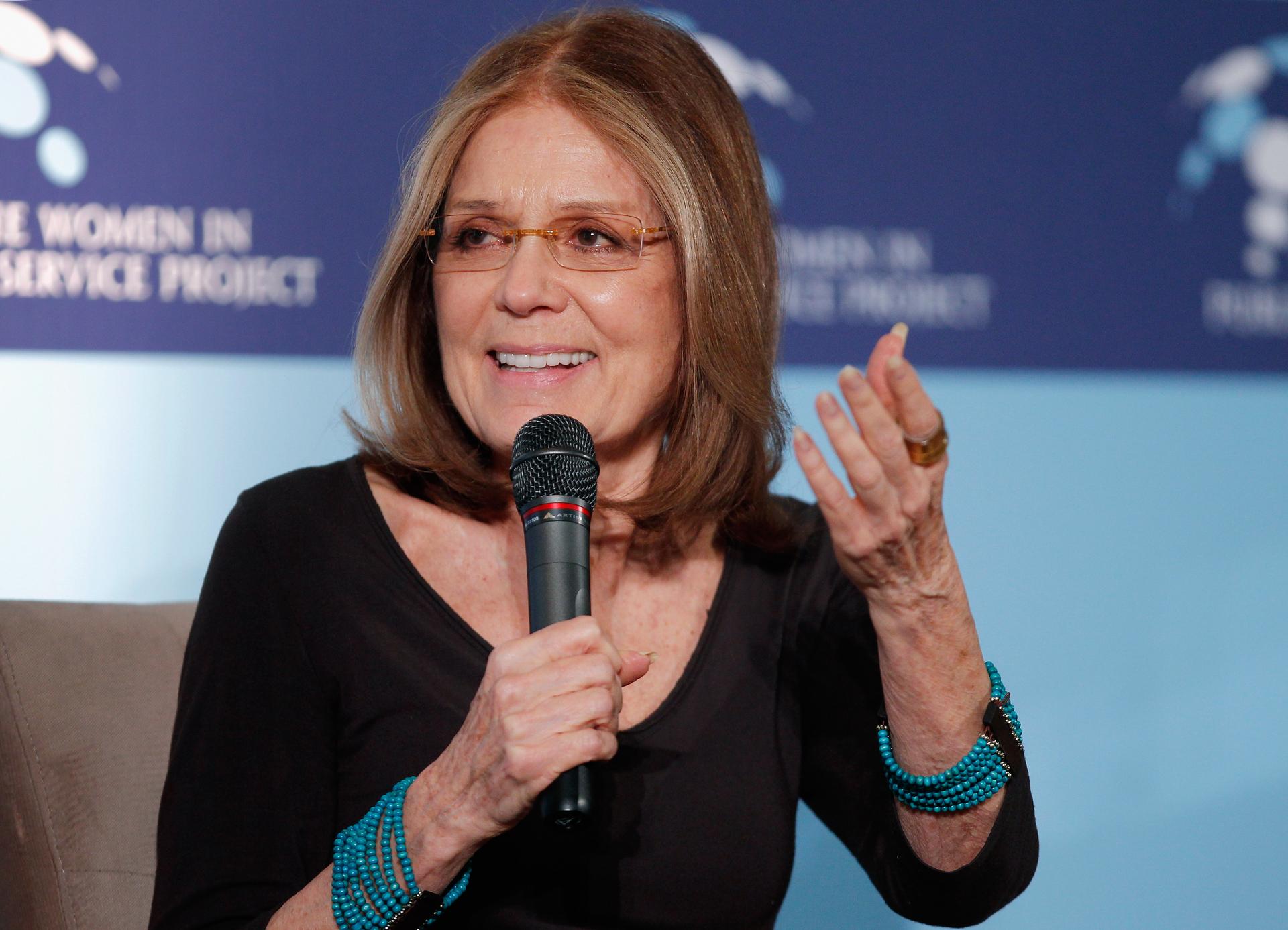Panel: Next generation of women needs to step it up on the corporate ladder
Feminist and journlalist Gloria Steinem spoke on a panel at the Women in the World Summit.
NEW YORK — The glass ceiling has been cracked — that much is certain. But there are only 18 women at the helm of Fortune 500 companies, just 20 percent of parliamentary seats globally are held by women, and female members of senior management are few and far between, despite all the magazine covers that have declared one year or another "The Year of the Woman."
It's been a long battle for women in the workplace, but as high up the corporate ladder women have gotten, the numbers show that while more women enter the workforce, few make it to senior positions.
Facebook COO Sheryl Sandberg moderated Friday morning's first panel at the third annual Women in the World Summit, "Where are the Women at the Top?"
Five of the country's top women executives, including the irreverant orginal leader of the professional woman's charge, Gloria Steinem, talked about where women are in the professional world and what needs to happen to continue propelling them forward.
Other questions addressed: What happened to the gender revolution? Has it stalled? And if so, why?
Forty years after Ms. Magazine's inception, a new generation of women are looking to break into the ranks of the boardroom. But, said Shelby Knox, director of women's rights organizing for Change.org, "We were told we were equal, and that there were no barriers — then we got into the workplace and found barriers and thought it was our problem as individuals. This generation's young women have looked at themselves like they're the problem, like there's something wrong, personally, when they can't move forward."
The solution for the new generation's professional revolution won't be individual efforts, panelists said, however the last generation did things. Young women need to work as a collective, was the sense of the panelists, banding together and helping each other up the corporate ladder. As Madeleine Albright said at Thursday evening's opening event, "There's a special place in hell for women who don't help each other."
But it seems young American women don't only need to focus on helping each other — they need to help older generations, too, and vice versa.
An example is Hillary Clinton's surprisingly low support from young women during her presidential bid. She finished third in the Iowa caucuses in the yougn, female demographic in 2008, according to Anne Kornblut, the deputy political editor at the Washington Post. "Younger women would say to me on the campaign trail, 'Obama would be more historic,'" she recalled. "Why would young women desert their own that way? Because women voters are very tought critics of women running for office."
It's a familiar tune.
"Horrible sexism was being lobbed at [Clinton]," remembered Knox. "Young women were terrified. They didn't want to be associated with that kind of sexism."
Jill Abrahmsom, the executive editor of the New York Times, who worked under the first female bureau chief of Time magazine, worked to set a famous quote straight and fight just that kind of sexist attitude. In 1962, the then-editor said, "No woman will ever be the editor of the New York Times." Abrahmsom is the first woman to hold the position, and proudly stated that close to 40 percent of senior management at the Times is women. But that's still not enough.
"The girls of today need to learn from the mistakes of the past 10 years of stalemate in the fight for equality. They need to start young, get the men on board, and support each other. The lack of strong women is working against the grain," said Steinem. "After all, the last time a lot of guys saw a powerful woman, they were eight."
Still, there's a lot of hope for the future. Instead of asking if the revolution has stalled, we should be asking, like Abramson, "what can we do to move it forward?"
GlobalPost web producer for Special Reports Alex Pearlman will be liveblogging and tweeting the summit, and you can follow along (@lexikon1) with the hashtag #wiw12. To see the weekend's agenda, head to The Daily Beast.
